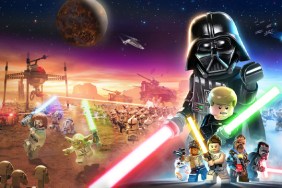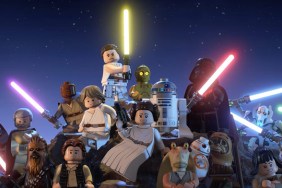While playing Titanfall 2 last week I got around to thinking, what makes a single-player campaign great? Frankly, most of them aren't interesting, to a point where most shooter fans skip straight to multiplayer and never look back.
With a few examples at hand this year, let's look at what it takes to make a good campaign.
This Is My Story
It's very difficult to retain the attention span of a player if there isn't at least some element of the story to latch onto. The key factor in this regard is writing. Without a good script, the game can quickly unravel and become entirely dependent upon gameplay. When that happens, a game usually has poor odds of success.
Writing affects both the small and big picture; brief dialog exchanges benefit tremendously from good delivery, as do the development of characters. Many of the most memorable characters in history had fantastic dialog, characters like the witty and charismatic Nathan Drake, to the courageous and confident John Marston. Characters like these are virtually unprecedented in FPS, perhaps partially due to how you can't see your character on-screen. Nonetheless, they serve as an example of what is possible.

In some cases having a compelling antagonist is enough to drive the experience forward. This isn't easy to accomplish, though. As we've seen from games like FarCry 4, simply making someone a monster isn't enough. Everything from the presentation of the character, to his or her voice acting and mannerisms have huge implications.
In Titanfall 2's case, your companion titan BT does a great job of making you not feel alone in a way not too dissimilar to Portal 2's Wheatley. It's nice to be able to explore such a magnificent sci-fi world with someone, especially when that someone has your back. Even then, simply having an interesting goal to strive for and running into unpredictable moments of climax along the way is enough to keep things moving.
Product Of Its Environment
A well designed universe can go a long way. After all, when you plug into a game you're looking to be carried into a fictional universe that is more interesting than our own.
The experience of heading underwater into a beautiful utopia was what made BioShock stand out to many. In this case it wasn't just the world, but the enemy design, too. You were convinced that this was an alien place that had secrets to uncover. You were encouraged to explore and learn about what was around you, de-emphasizing the gameplay, even though it was fantastic.

Battlefield 1 serves as a great recent example. We've been to World War 1 in gaming before, but it presents the period in an incredibly articulate manner. It paints the violence of the war vividly, and also its dark trenches were many fought until their last breath. But it also showcases the greatest ingenuity of humanity. It's amazing to see what sorts of machines mankind was able to create 100 years ago, and to be able to pilot one is a dream realized through gaming.
Rock Solid Gameplay
It's difficult to make a game exciting if it isn't fun to play, and more than any genre FPS games are incredibly reliant on good gameplay. There are a lot of factors when it comes to this, including highly communicative input feedback, registration, and varied ways of engaging with the world and its inhabitants.
It isn't an element executed well in most cases, especially for lower budget titles. This is where the kings of the industry such as Call of Duty earn their spot at the top of the totem pole. And once again Titanfall 2 serves as a superb example with shooting and mobility that rivals anything else in the industry. These are games that feel great to play whether you're a console or PC gamer. When you fire a gun you feel the sense of power that you wield in your hands.
What you don't want is a feeling of disconnect between the character and the world around him or her. Jarring gameplay or movement can make immersion difficult in addition ensuring that the minute-to-minute combat experience isn't as fun as it should be.
Straight To The Point
There are few things worse than a campaign that lasts too long. It's very difficult to come back from losing momentum in an FPS game, and the longer they are the more difficult it is to balance.
Many modern FPS campaigns last anywhere between five to seven hours. Many would call this too short, but it's like that for a good reason. Attention spans are downtrending in recent years, so delivering the goods in an concise manner is important.

It takes a lot of work to keep a game interesting beyond the seven hour mark. Games like BioShock have the luxury of RPG-esque elements that keep gameplay varied over a long period of time, in addition to providing a great sense of progression from beginning to end. Battlefield 1 benefits from having stellar vehicle design, allowing you to transition between infantry style gameplay to a tank or biplane with no separation of immersion. Some games employ puzzles and exploration to break up the monotony with great results.
All of this year's major FPS campaigns were short. Even then, they were well-regarded, further establishing that as long as you know how to keep the pacing on-point, you can get away with not having a 10 hour experience to provide for players.
These are just a few elements that are important to an FPS campaign's design. Can you think of any others? Share your thoughts in the comments below.







